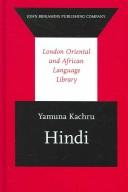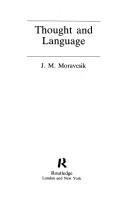| Listing 1 - 10 of 32 | << page >> |
Sort by
|
Book
ISBN: 9722117785 9789722117784 Year: 2006 Publisher: Lisboa Caminho
Abstract | Keywords | Export | Availability | Bookmark
 Loading...
Loading...Choose an application
- Reference Manager
- EndNote
- RefWorks (Direct export to RefWorks)
Portugisisk språk --- Historisk framstilling --- Lærebøker (Form) --- Portugisisk språk. --- Historisk framstilling. --- Lærebøker (Form). --- Portuguese language --- History

ISBN: 902723812X 9789027238122 9789027238214 9027238219 9786612155260 1282155261 9027293147 9789027293145 Year: 2006 Publisher: Amsterdam Benjamins
Abstract | Keywords | Export | Availability | Bookmark
 Loading...
Loading...Choose an application
- Reference Manager
- EndNote
- RefWorks (Direct export to RefWorks)
This book presents the structure of Hindi keeping in view the sociolinguistic context of language use. It includes descriptions of sounds, devices of word formation, rules of phrase and sentence construction and conventions of language use in spoken and written texts incorporating the insights gained by application of recent linguistic theories. The account presented here, however, is free from abstruse technical vocabulary and modes of presentation that aim at justifying a particular linguistic model. This volume is primarily designed as a source of reference for linguists and educators who want to be better informed about the forms and functions of Hindi, and a resource for students and teachers of Hindi.Hindi, the official language of the Republic of India, is the second most widely spoken language with approximately three hundred and fifty million speakers. In its diasporic contexts, it is spoken in Africa, Australia, Europe, Fiji, Guyana, Surinam, Trinidad, United Arab Emirates, United Kingdom and United States. An Indo-European language by genetic affiliation, Hindi shares many characteristics with Austro-Asiatic, Dravidian, and Sino-Tibetan languages of the subcontinent. In addition, Hindi has assimilated features of Arabic, Persian and English in a variety of its functionally determined styles.
Indic languages --- Grammar --- Hindi (språk). --- Hindi language --- Grammar. --- Hindustani language
Book
ISBN: 8476351275 9788476351277 Year: 1996 Publisher: Madrid: Arco/Libros,
Abstract | Keywords | Export | Availability | Bookmark
 Loading...
Loading...Choose an application
- Reference Manager
- EndNote
- RefWorks (Direct export to RefWorks)
Lexicology. Semantics --- Spanish language --- Grammar --- Word formation --- Spansk språk. --- Morfologi. --- Orddanning. --- Leksikografi. --- Spaanse taal --- woordvorming. --- Spanish language - Word formation --- Woordvorming.
Book
ISBN: 9781905670307 9781905670352 9781905670369 1905670303 1905670354 1905670362 Year: 2011 Volume: 110 Publisher: London: University of London. Institute of classical studies,
Abstract | Keywords | Export | Availability | Bookmark
 Loading...
Loading...Choose an application
- Reference Manager
- EndNote
- RefWorks (Direct export to RefWorks)
"Imagines Italicae, edited by M.H. Crawford and colleagues, is the outcome of a research project based in the combined library of the Hellenic and Roman Societies and of the Institute of Classical Studies, beginning in 2002 and initially supported by the UK Arts and Humanities Research Council. The empire created by Rome underlies many of the structures of modern Europe, and that empire in turn was in its early stages the joint creation of Rome and the other peoples of Italy. Almost the only records left by those peoples themselves consist of the texts they inscribed and the coinages they produced. Imagines Italicae provides for the first time a complete corpus of those texts which are in one or other of the Italic languages, accompanied by photographs or drawings, a critical apparatus, an English translation where possible, a bibliography, and a full account of their discovery and archaeological context. The corpus, geographically arranged, contains 982 entries in total, lavishly illustrated, some of them multiple, preceded by a substantial Introduction, and completed by an Appendix of Italic names occurring in Greek texts, detailed Concordances, and full epigraphic indexes. The work is in a very real sense both that of the authors and of the 80 or so museums and libraries that welcomed the authors and helped them in every way possible, so as to enable them for the project to study and photograph their holdings; in subscribing to the work, you will both gain access to those holdings and also support the provision to each and every one of the museums and libraries in question of a copy of the work. It is a work that will make it possible for the first time to understand the complex linguistic geography of ancient Italy and to address crucial historical questions about the religion, culture, society, economy, and institutions of the peoples of Italy."--
Inscriptions, Italic --- Inscriptions italiques --- Catalogs --- Catalogues --- Italy --- Italie --- Antiquities --- Catalogs. --- Antiquités --- Antiquités --- Inscriptions italiques. --- Antiquities. --- Fornitaliska språk. --- Fornlämningar. --- Inscriptions, Italic. --- Inskriptioner. --- Italy. --- Inscriptions, Italic - Catalogs --- Italy - Antiquities - Catalogs
Book
ISBN: 9155411703 9789155411701 Year: 1981 Publisher: Stockholm Almqvist och Wiksell International
Abstract | Keywords | Export | Availability | Bookmark
 Loading...
Loading...Choose an application
- Reference Manager
- EndNote
- RefWorks (Direct export to RefWorks)
Law --- -Manuscripts, Swedish --- Swedish manuscripts --- Acts, Legislative --- Enactments, Legislative --- Laws (Statutes) --- Legislative acts --- Legislative enactments --- Jurisprudence --- Legislation --- Sources --- Manuscripts, Swedish. --- Suédois (langue) --- Droit --- Manuscrits médiévaux --- Droit médiéval --- Gesetz. --- Textgeschichte. --- Fornsvenska språket. --- Lagar --- Altschwedisch. --- Manuscrits --- Manuscrits. --- språk --- historia --- Manuscripts, Swedish

ISBN: 1588110249 902722224X 9781588110244 9789027222244 9789027297181 9027297185 1282161709 9786612161704 9781282161702 6612161701 Year: 2001 Publisher: Amsterdam Philadelphia J. Benjamins
Abstract | Keywords | Export | Availability | Bookmark
 Loading...
Loading...Choose an application
- Reference Manager
- EndNote
- RefWorks (Direct export to RefWorks)
The Psychology and Sociology of Literature is a collection of 25 chapters on literature by some of the leading psychologists, sociologists, and literary scholars in the field of the empirical study of literature. Contributors include Ziva Ben-Porat, Gerry Cupchik, Art Graesser, Rachel Giora, Norbert Groeben, Colin Martindale, David Miall, Willie van Peer, Kees van Rees, Siegfried Schmidt, Hugo Verdaasdonk, and Rolf Zwaan. Topics include literature and the reading process; the role of poetic language, metaphor, and irony; cathartic and Freudian effects; literature and creativity; the career of the literary author; literature and culture; literature and multicultural society, literature and the mass media; literature and the internet; and literature and history. An introduction by the editors situates the empirical study of literature within an academic context. The chapters are all invited and refereed contributions, collected to honor the scholarship and retirement of professor Elrud Ibsch, of the Free University of Amsterdam. Together they represent the state of the art in the empirical study of literature, a movement in literary studies which aims to produce reliable and valid scientific knowledge about literature as a means of verbal communication in its cultural context. Elrud Ibsch was one of the pioneers in Europe to promote this approach to literature some 25 years ago, and this volume takes stock of what has happened since. The Psychology and Sociology of Literature presents an invaluable overview of the results, promises, gaps, and needs of the empirical study of literature. It addresses social scientists as well as scholars in the humanities who are interested in literature as discourse.
Literature --- History and criticism. --- litteratursosiologi --- litteraturpsykologi --- litteraturhistorie --- litteratur --- lesing --- språk --- internett --- massemedia --- multikulturelle samfunn --- litteraturforskning --- empiriske --- erfaringsbaserte undersøkelser --- Appraisal of books --- Books --- Evaluation of literature --- Criticism --- Literary style --- Appraisal --- Evaluation --- språk
Book
ISBN: 1107044499 9781107044494 1108718744 1316455467 1316454983 1316457389 1316455947 1316458342 1107375347 1316451216 Year: 2016 Publisher: Cambridge : Cambridge University Press,
Abstract | Keywords | Export | Availability | Bookmark
 Loading...
Loading...Choose an application
- Reference Manager
- EndNote
- RefWorks (Direct export to RefWorks)
With contributions from leading scholars of bilingualism, Language Dominance in Bilinguals is the first publication to survey different approaches to language dominance, along with suggested avenues for further research. It illustrates how a critical approach to the notion of language dominance, as well as its operationalisation and measurement, can provide new insights into this burgeoning area of research. Drawing on adult and child data from a variety of language pairs, the chapters discuss how language dominance is to be conceptualised and distinguished from such related constructs as language proficiency and language competence. This volume is the first of its kind to present an overview of different approaches to language dominance from across the theoretical spectrum, as well as suggested avenues for further research. Accessibly written, Language Dominance in Bilinguals is a valuable new addition to the field and essential reading for students and scholars working in bilingualism, speech therapy and education.
Bilingualism --- Bilinguisme --- Dominanz. --- Education, Bilingual --- Education, Bilingual. --- Language and languages --- Sprache. --- Språk --- Tests linguistiques. --- Tvåspråkig undervisning. --- Tvåspråkighet --- Tweetaligheid --- Zweisprachigkeit. --- Ability testing. --- Tests d'aptitude. --- testning. --- taaldominantie. --- United States. --- Multilingual education --- Language assessment --- Study and teaching
Book
ISBN: 1614511942 9781614512516 1614512515 9781614511946 1299722326 Year: 2013 Publisher: Berlin
Abstract | Keywords | Export | Availability | Bookmark
 Loading...
Loading...Choose an application
- Reference Manager
- EndNote
- RefWorks (Direct export to RefWorks)
Most African languages are spoken by communities as one of several languages present on a daily basis. The persistence of multilingualism and the linguistic creativity manifest in the playful use of different languages are striking, especially against the backdrop of language death and expanding monolingualism elsewhere in the world. The effortless mastery of several languages is disturbing, however, for those who take essentialist perspectives that see it as a problem rather than a resource, and for the dominating, conflictual, sociolinguistic model of multilingualism. This volume investigates African minority languages in the context of changing patterns of multilingualism, and also assesses the status of African languages in terms of existing influential vitality scales. An important aspect of multilingual praxis is the speakers' agency in making choices, their repertoires of registers and the multiplicity of language ideology associated with different ways of speaking. The volume represents a new and original contribution to the ethnography of speaking of multilingual practices and the cultural ideas associated with them.
Multilingualism --- Linguistic change --- Languages in contact --- Language and culture --- Language and languages --- Variation --- Africa --- Languages. --- Foreign languages --- Languages --- Culture and language --- Change, Linguistic --- Language change --- Plurilingualism --- Polyglottism --- Anthropology --- Communication --- Ethnology --- Information theory --- Meaning (Psychology) --- Philology --- Linguistics --- Culture --- Areal linguistics --- Historical linguistics --- Afrikanische Sprachen. --- Afrikanska språk. --- Flerspråkighet. --- Language and culture. --- Language and languages. --- Languages in contact. --- Linguistic change. --- Mehrsprachigkeit. --- Multilingualism. --- Soziolinguistik. --- Sprachvariante. --- Sprachwandel. --- Språk och samhälle. --- Språkförändringar. --- Språkkontakter. --- Språkvariation. --- Variation. --- Africa. --- Afrika. --- African Languages. --- Language Contact. --- Language Ideology. --- Linguistic Change. --- Sociolinguistics.

ISBN: 0415043220 0415071054 Year: 1990 Volume: vol *10 Publisher: London : Routledge,
Abstract | Keywords | Export | Availability | Bookmark
 Loading...
Loading...Choose an application
- Reference Manager
- EndNote
- RefWorks (Direct export to RefWorks)
Philosophy of language --- Theory of knowledge --- Being --- Denken --- Etre (Philosophie) --- Ontologie --- Ontology --- Pensée --- Thought and thinking --- Zijn (Filosofie) --- Zijnsleer --- Language and languages --- -Ontology --- Mind --- Thinking --- Thoughts --- Educational psychology --- Philosophy --- Psychology --- Intellect --- Logic --- Perception --- Psycholinguistics --- Self --- Metaphysics --- Necessity (Philosophy) --- Substance (Philosophy) --- Foreign languages --- Languages --- Anthropology --- Communication --- Ethnology --- Information theory --- Meaning (Psychology) --- Philology --- Linguistics --- Psycholinguistics. --- Comprehension. --- Thought and thinking. --- language. --- Språk och tanke. --- Språkfilosofi. --- Språkpsykologi. --- Philosophy.
Book
ISBN: 9783034305242 3034305249 Year: 2010 Volume: 128 Publisher: Bern: Peter Lang,
Abstract | Keywords | Export | Availability | Bookmark
 Loading...
Loading...Choose an application
- Reference Manager
- EndNote
- RefWorks (Direct export to RefWorks)
Language and languages --- Computer-assisted instruction --- 800.515 --- Computerondersteunend (taal)onderwijs. Computer Assisted Language Learning --- 800.515 Computerondersteunend (taal)onderwijs. Computer Assisted Language Learning --- Language and languages - Computer-assisted instruction --- Corpora (Linguistics). --- Corpus (Linguistique). --- Corpus linguistics --- Korpus (Linguistik). --- Langage et langues --- Language teaching --- Sprachunterricht. --- Språk --- Language teaching. --- Enseignement assisté par ordinateur. --- Computer-assisted instruction. --- Computer corpora. --- Datorstödd undervisning.
| Listing 1 - 10 of 32 | << page >> |
Sort by
|

 Search
Search Feedback
Feedback About UniCat
About UniCat  Help
Help News
News